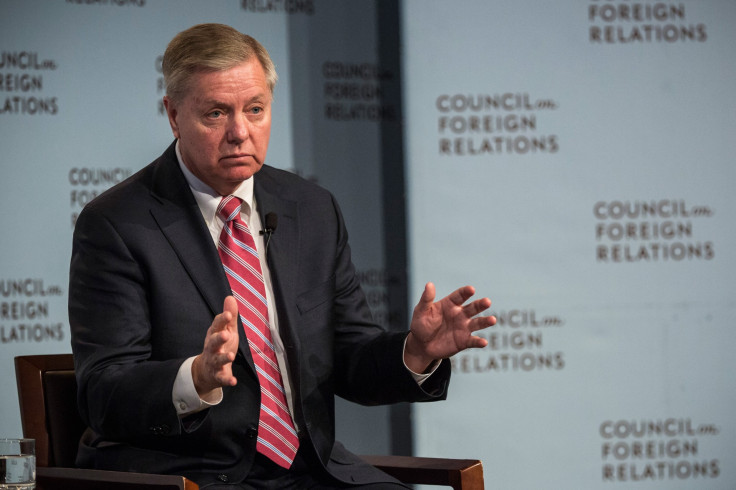Iran Nuclear Deal Speech Reaction: 'Pres Obama Doesn't Know What He's Doing,' Sen. Lindsey Graham Says

Critics of the deal reached last month with Iran are firing back after U.S. President Barack Obama accused them of using some of the same arguments that misled the American public into a war with Iraq more than a decade ago. Repeating past assertions, the president insisted the deal was a "strong one" that would make it impossible for Iran to build a nuclear weapon during a speech Wednesday at American University in Washington D.C.
Sen. Lindsey Graham, R-S.C., one of the deal's strongest opponents, went on a Twitter frenzy following the speech attacking the president of effectively being tricked by Iran into pushing forward a bad deal. "When will everyone realize Pres Obama doesn’t know what he’s doing? Clearly the Iranians have figured this out," he wrote in one of his tweets.
A joint statement published by Graham and Sen. John McCain, R-Ariz., accused the president of using "straw men" arguments to divert attention from his own "failed policies."
"What we object to is the President's lack of realism -- his ideological belief that diplomacy is good and force is bad, which has repeatedly resulted either in failed deals or bad deals. The alternative to this deal was never war; it was greater pressure on Iran and insistence on a better agreement," the statement read.
Another presidential hopeful, former Gov. Jeb Bush of Florida, tweeted: "This deal paves the way to Iran getting the bomb & gives $150bn to the mullahs. That's not leadership."
.@BarackObama this deal paves the way to Iran getting the bomb & gives $150bn to the mullahs. That's not leadership.
— Jeb Bush (@JebBush) August 5, 2015My stmt w/ @LindseyGrahamSC on Pres Obama's remarks on #IranDeal today - more straw men, false choices: http://t.co/iRW3ED6aQj
— John McCain (@SenJohnMcCain) August 5, 2015Obama defended the agreement with Iran Wednesday and called the deal the most significant decision facing lawmakers since the vote for war with Iraq in 2002. He said the deal presented a diplomatic means of avoiding conflict with Iran while ensuring the country was unable to develop nuclear weapons.
"The choice we face is ultimately between diplomacy and some form of war," Obama said. "Maybe not tomorrow, maybe not three months from now, but soon."
The deal has come under intense criticism by Republicans in Congress, as well as some Democrats, who do not believe Iran can be trusted to keep to the terms of the agreement. Obama will need to summon enough support for the deal as a September congressional vote approaches to ensure opponents are not able to secure the two-thirds majority necessary to override a presidential veto of their decision.
Clearly, President Obama does not understand the Middle East and has made one blunder after another. #IranDeal
— Lindsey Graham (@LindseyGrahamSC) August 5, 2015The alternative to #IranDeal was never war; it was greater pressure on Iran and insistence on a better agreement.
— Lindsey Graham (@LindseyGrahamSC) August 5, 2015The terms of the agreement would see Iran abandon the development of a nuclear weapon and cut down significantly on its centrifuges as well as allow for inspections of its facilities. In exchange, Iran would experience an easing of international sanctions that have strangled the country's economy.
Israel's Prime Minister Benjamin Netanyahu has come out as a strong opponent of the deal and recently issued a public address targeting the American Jewish community, insisting the deal would ultimately lead to a nuclear Iran. Obama, bluntly addressing the charges of the Israeli leader Wednesday, said, "I believe he is wrong."
© Copyright IBTimes 2024. All rights reserved.






















